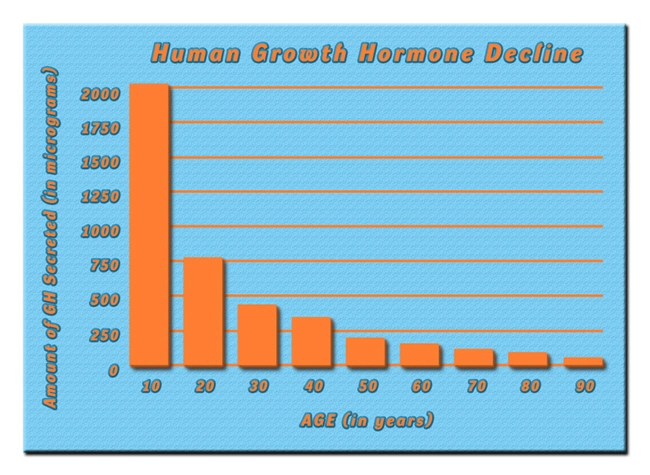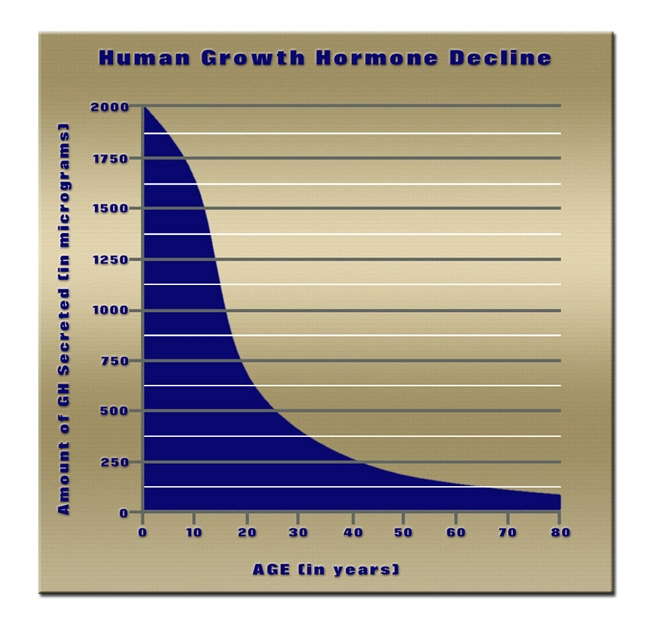
Introduction
Viagra, generically known as sildenafil, has been a revolutionary drug since its introduction in 1998, primarily used for the treatment of erectile dysfunction (ED) in men. While its efficacy in improving sexual health is well-documented, the impact of Viagra on other systems, such as the gastrointestinal (GI) tract, is less understood. This article delves into the gastrointestinal effects of Viagra in American males, providing a comprehensive gastroenterological perspective.
Pharmacodynamics of Viagra and Its Systemic Effects
Viagra functions by inhibiting phosphodiesterase type 5 (PDE5), an enzyme found in various tissues, including the smooth muscle cells lining the blood vessels of the GI tract. By blocking PDE5, Viagra increases cyclic guanosine monophosphate (cGMP) levels, leading to smooth muscle relaxation and increased blood flow. This mechanism, while beneficial for penile erection, also influences the GI system, potentially altering motility and vascular dynamics.
Gastrointestinal Side Effects of Viagra
Clinical studies and patient reports have identified several GI side effects associated with Viagra use. The most commonly reported include dyspepsia, or indigestion, which can manifest as upper abdominal discomfort or pain. Other reported effects include diarrhea, nausea, and gastroesophageal reflux disease (GERD) symptoms. These symptoms are believed to arise from the increased blood flow to the GI tract and the resultant changes in motility and acid secretion.
Clinical Implications and Management
For American males using Viagra, understanding and managing these GI side effects is crucial. Healthcare providers should screen patients for a history of GI disorders before prescribing Viagra. For those experiencing significant GI symptoms, dosage adjustments or alternative ED treatments may be necessary. Additionally, lifestyle modifications, such as dietary changes and the use of antacids, can help mitigate these effects.
Research and Future Directions
Current research into the gastrointestinal impact of Viagra is limited but growing. Future studies should focus on the long-term effects of Viagra on the GI tract, particularly in patients with pre-existing GI conditions. Additionally, exploring the potential therapeutic uses of PDE5 inhibitors in GI disorders could provide new avenues for treatment.
Conclusion
While Viagra has significantly improved the quality of life for many American men with ED, its effects on gastrointestinal health warrant attention. By understanding the potential GI side effects and managing them appropriately, healthcare providers can ensure a more holistic approach to patient care. As research progresses, the full scope of Viagra's impact on the GI system will become clearer, potentially leading to new treatment paradigms for both ED and GI disorders.
In summary, the gastrointestinal effects of Viagra in American males are an important consideration in clinical practice. Through vigilant monitoring and patient education, healthcare providers can help mitigate these effects, ensuring that the benefits of Viagra are not overshadowed by its potential GI side effects.
Contact Us Today For A Free Consultation
Dear Patient,
Once you have completing the above contact form, for security purposes and confirmation, please confirm your information by calling us.
Please call now: 1-800-380-5339.
Welcoming You To Our Clinic, Professor Tom Henderson.

- Optimizing Viagra Efficacy: The Role of Diet in Enhancing or Impeding Its Effects [Last Updated On: February 20th, 2025] [Originally Added On: February 20th, 2025]
- Viagra's Evolution: The Groundbreaking Tale of Sildenafil in Transforming Erectile Dysfunction Therapy [Last Updated On: February 25th, 2025] [Originally Added On: February 25th, 2025]
- The Efficacy of Sildenafil: An Executed Symphony of Chemical Reactions [Last Updated On: February 26th, 2025] [Originally Added On: February 26th, 2025]
- Unraveling the Enigma: Viagra and Generic Sildenafil Dissected [Last Updated On: February 27th, 2025] [Originally Added On: February 27th, 2025]
- Unraveling the Magic Behind Viagra: A Comprehensive Review on Its Mode of Action [Last Updated On: February 28th, 2025] [Originally Added On: February 28th, 2025]
- Transcending Boundaries: The Progressive Transition in Erectile Dysfunction Therapies [Last Updated On: February 28th, 2025] [Originally Added On: February 28th, 2025]
- Deciphering the Biochemical Intricacies of Sildenafil: A Closer Look [Last Updated On: March 1st, 2025] [Originally Added On: March 1st, 2025]
- Sildenafil’s Double-Edged Sword: A Veritable Panacea or Silent Cardiovascular Threat? [Last Updated On: March 2nd, 2025] [Originally Added On: March 2nd, 2025]
- Optimizing Sildenafil Dosage for Effective Erectile Dysfunction Treatment: Guidelines and Considerations [Last Updated On: March 3rd, 2025] [Originally Added On: March 3rd, 2025]
- Comprehensive Guide to Viagra: Uses, Side Effects, and Precautions [Last Updated On: March 4th, 2025] [Originally Added On: March 4th, 2025]
- Managing Viagra Side Effects: Practical Tips for American Men [Last Updated On: March 5th, 2025] [Originally Added On: March 5th, 2025]
- Exploring Viagra's Impact on Men with Hypertension and Cardiovascular Health [Last Updated On: March 6th, 2025] [Originally Added On: March 6th, 2025]
- Age-Related Effects on Viagra's Efficacy: A Comprehensive Guide for American Men's Sexual Health [Last Updated On: March 7th, 2025] [Originally Added On: March 7th, 2025]
- Optimizing Viagra Use for Diabetic Men: Efficacy, Safety, and Dosage Considerations Explored [Last Updated On: March 8th, 2025] [Originally Added On: March 8th, 2025]
- The Psychological Impact of Viagra: Enhancing Self-Esteem and Relationship Satisfaction [Last Updated On: March 9th, 2025] [Originally Added On: March 9th, 2025]
- Comparing Viagra, Cialis, and Levitra: Effective ED Treatments for American Men [Last Updated On: March 10th, 2025] [Originally Added On: March 10th, 2025]
- Revolutionizing ED Care: Exploring Advanced Treatments Beyond Traditional Medications [Last Updated On: March 10th, 2025] [Originally Added On: March 10th, 2025]
- The Evolution of Male Sexual Health: The Impact of Viagra on Culture and Well-being [Last Updated On: March 12th, 2025] [Originally Added On: March 12th, 2025]
- Unveiling the Impact of Viagra: Transformative Stories from American Men [Last Updated On: March 13th, 2025] [Originally Added On: March 13th, 2025]
- Unveiling the Impact of Lifestyle on Viagra's Performance: A Guide for American Males [Last Updated On: March 15th, 2025] [Originally Added On: March 15th, 2025]
- Viagra and Libido: Understanding the Impact and Dispelling Myths [Last Updated On: March 16th, 2025] [Originally Added On: March 16th, 2025]
- Placebo Effect's Role in Enhancing Viagra's Efficacy for Erectile Dysfunction [Last Updated On: March 17th, 2025] [Originally Added On: March 17th, 2025]
- Viagra: Dispelling Myths and Understanding Realities for American Males [Last Updated On: March 18th, 2025] [Originally Added On: March 18th, 2025]
- Viagra's Recreational Use Among American Males: Risks, Rewards, and Implications [Last Updated On: March 18th, 2025] [Originally Added On: March 18th, 2025]
- Viagra's Global Impact and Dominance in American Male Sexual Health Market [Last Updated On: March 18th, 2025] [Originally Added On: March 18th, 2025]
- Viagra and Alcohol: Risks, Interactions, and Safe Usage Guidelines for American Men [Last Updated On: March 19th, 2025] [Originally Added On: March 19th, 2025]
- Sildenafil's Versatile Applications for American Males Beyond Erectile Dysfunction [Last Updated On: March 21st, 2025] [Originally Added On: March 21st, 2025]
- Sildenafil: From Viagra to Vital - Transforming Sexual Health in American Males [Last Updated On: March 21st, 2025] [Originally Added On: March 21st, 2025]
- Global Viagra Pricing: Factors, Comparisons, and Cost-Saving Strategies for American Males [Last Updated On: March 21st, 2025] [Originally Added On: March 21st, 2025]
- Stress-Induced ED in American Men: Viagra's Role and Holistic Management Strategies [Last Updated On: March 21st, 2025] [Originally Added On: March 21st, 2025]
- Viagra's Impact on Mental Health in American Men: Benefits and Challenges [Last Updated On: March 22nd, 2025] [Originally Added On: March 22nd, 2025]
- Generic Sildenafil: Transforming ED Treatment with Affordable, Effective Solutions [Last Updated On: March 22nd, 2025] [Originally Added On: March 22nd, 2025]
- Viagra: Uses, Mechanism, and Critical Drug Interactions for Safe Use [Last Updated On: March 22nd, 2025] [Originally Added On: March 22nd, 2025]
- Navigating Safe Viagra Purchases: Avoiding Counterfeits and Ensuring Efficacy for American Males [Last Updated On: March 22nd, 2025] [Originally Added On: March 22nd, 2025]
- Sildenafil vs. Other Oral ED Medications: A Comprehensive Guide for American Men [Last Updated On: March 22nd, 2025] [Originally Added On: March 22nd, 2025]
- Viagra's Role in Sexual Rehabilitation for American Males Post-Surgery [Last Updated On: March 22nd, 2025] [Originally Added On: March 22nd, 2025]
- Viagra: Safe Usage Guide for Treating Erectile Dysfunction in Men [Last Updated On: March 23rd, 2025] [Originally Added On: March 23rd, 2025]
- Viagra's Role in Treating Pulmonary Hypertension in American Males: Benefits and Management [Last Updated On: March 23rd, 2025] [Originally Added On: March 23rd, 2025]
- Sildenafil's Off-Label Uses: Enhancing American Men's Health Beyond ED Treatment [Last Updated On: March 23rd, 2025] [Originally Added On: March 23rd, 2025]
- Sildenafil: Revolutionizing ED Treatment for American Men - Uses, Benefits, Considerations [Last Updated On: March 23rd, 2025] [Originally Added On: March 23rd, 2025]
- Cultural Attitudes Shaping Viagra Use Among American Men: Stigma, Media, and Economics [Last Updated On: March 23rd, 2025] [Originally Added On: March 23rd, 2025]
- Viagra's Impact on Prostate Health: Benefits and Considerations for American Men [Last Updated On: March 24th, 2025] [Originally Added On: March 24th, 2025]
- Viagra: Boosting Sexual Confidence and Performance in American Men [Last Updated On: March 24th, 2025] [Originally Added On: March 24th, 2025]
- Understanding Sexual Arousal and Viagra's Role in Treating Erectile Dysfunction [Last Updated On: March 24th, 2025] [Originally Added On: March 24th, 2025]
- Viagra's Impact on American Couples: Enhancing Intimacy and Fostering Relationship Growth [Last Updated On: March 24th, 2025] [Originally Added On: March 24th, 2025]
- Viagra's Impact: Transforming ED Treatment and Societal Attitudes in America [Last Updated On: March 24th, 2025] [Originally Added On: March 24th, 2025]
- Viagra: Enhancing Sexual Performance and Quality of Life for American Men [Last Updated On: March 24th, 2025] [Originally Added On: March 24th, 2025]
- Viagra: Revolutionizing ED Treatment and Enhancing Men's Quality of Life [Last Updated On: March 24th, 2025] [Originally Added On: March 24th, 2025]
- Viagra's Recreational Use: Medical, Ethical, and Societal Impacts in America [Last Updated On: March 25th, 2025] [Originally Added On: March 25th, 2025]
- Viagra's Impact on Sexual Medicine: From ED Treatment to Broader Health Insights [Last Updated On: March 25th, 2025] [Originally Added On: March 25th, 2025]
- Navigating Viagra Discussions with Doctors: A Guide for American Men [Last Updated On: March 25th, 2025] [Originally Added On: March 25th, 2025]
- Viagra and Exercise: Synergistic Benefits for Men's Sexual and Cardiovascular Health [Last Updated On: March 25th, 2025] [Originally Added On: March 25th, 2025]
- Viagra: Understanding and Managing Erectile Dysfunction Effectively [Last Updated On: March 25th, 2025] [Originally Added On: March 25th, 2025]
- Smoking's Impact on Viagra Efficacy: Insights for American Males with ED [Last Updated On: March 26th, 2025] [Originally Added On: March 26th, 2025]
- Viagra's Cultural Journey: Iconic Impact on American Pop Culture and Masculinity [Last Updated On: March 26th, 2025] [Originally Added On: March 26th, 2025]
- Viagra's Mechanism: Enhancing Blood Flow for Erectile Dysfunction Treatment [Last Updated On: March 26th, 2025] [Originally Added On: March 26th, 2025]
- Viagra in the U.S.: Regulations, Access, and Legal Landscape Overview [Last Updated On: March 26th, 2025] [Originally Added On: March 26th, 2025]
- Sildenafil Contraindications: Essential Safety Guide for American Males [Last Updated On: March 27th, 2025] [Originally Added On: March 27th, 2025]
- Viagra: Enhancing Sexual Health Safely with Sildenafil [Last Updated On: March 27th, 2025] [Originally Added On: March 27th, 2025]
- Viagra's Impact on Hormonal Balance in American Men: A Comprehensive Review [Last Updated On: March 27th, 2025] [Originally Added On: March 27th, 2025]
- Maximizing Viagra Benefits: Usage, Mechanism, Side Effects, and Safety for ED Treatment [Last Updated On: March 27th, 2025] [Originally Added On: March 27th, 2025]
- Telemedicine Enhances Viagra Access for American Males: Convenience, Privacy, and Safety [Last Updated On: March 27th, 2025] [Originally Added On: March 27th, 2025]
- Viagra Use and Patient Privacy: Navigating HIPAA and Telemedicine for ED Treatment [Last Updated On: March 27th, 2025] [Originally Added On: March 27th, 2025]
- Sildenafil's Impact on Urology: From ED to Broader Applications in American Men [Last Updated On: March 28th, 2025] [Originally Added On: March 28th, 2025]
- Viagra's Economic Impact on U.S. Pharmaceutical Industry and ED Treatment Evolution [Last Updated On: March 29th, 2025] [Originally Added On: March 29th, 2025]
- Generic Sildenafil: Revolutionizing ED Treatment with Affordable Access [Last Updated On: March 29th, 2025] [Originally Added On: March 29th, 2025]
- Ethical Dilemmas in Viagra Advertising: Impact and Oversight [Last Updated On: March 29th, 2025] [Originally Added On: March 29th, 2025]
- Viagra vs. Natural Remedies for ED: Efficacy, Side Effects, and Cost Compared [Last Updated On: March 29th, 2025] [Originally Added On: March 29th, 2025]
- Viagra and Male Fertility: Myths, Facts, and Indirect Benefits Explored [Last Updated On: March 29th, 2025] [Originally Added On: March 29th, 2025]
- Testosterone Levels Enhance Viagra Efficacy in American Men: Optimizing ED Treatment [Last Updated On: March 29th, 2025] [Originally Added On: March 29th, 2025]
- Viagra's Journey: From Hypertension Drug to ED Treatment via FDA Approval [Last Updated On: March 30th, 2025] [Originally Added On: March 30th, 2025]
- Viagra's Impact on Sexual Satisfaction and Relationship Dynamics in American Males [Last Updated On: April 2nd, 2025] [Originally Added On: April 2nd, 2025]
- Long-Term Viagra Use: Benefits, Risks, and Health Impacts for American Males [Last Updated On: April 2nd, 2025] [Originally Added On: April 2nd, 2025]
- Viagra Use in Men with Chronic Illnesses: Safety, Interactions, and Management [Last Updated On: April 4th, 2025] [Originally Added On: April 4th, 2025]
- Sildenafil: Restoring Sexual Function and Enhancing Life Post-Injury for American Men [Last Updated On: April 5th, 2025] [Originally Added On: April 5th, 2025]
- Viagra's Role in Treating Erectile Dysfunction Among Younger Men: A Comprehensive Overview [Last Updated On: April 5th, 2025] [Originally Added On: April 5th, 2025]
- Erectile Dysfunction: Sildenafil vs. Lifestyle Changes - Efficacy and Considerations for American Males [Last Updated On: April 6th, 2025] [Originally Added On: April 6th, 2025]
- Viagra Interactions: Critical Considerations for American Males with Multiple Medications [Last Updated On: April 7th, 2025] [Originally Added On: April 7th, 2025]
- Sildenafil Pharmacokinetics: Optimizing Use for American Males with ED [Last Updated On: April 7th, 2025] [Originally Added On: April 7th, 2025]
- Viagra vs. Other ED Treatments: Efficacy, Side Effects, and Patient Satisfaction Compared [Last Updated On: April 8th, 2025] [Originally Added On: April 8th, 2025]








